Aged care providers seek immunity from civil claims or criminal charges in restraint cases
A move to give aged care providers immunity against civil claims or criminal charges has been slammed by lawyers. WARNING: Distressing.

National
Don't miss out on the headlines from National. Followed categories will be added to My News.
Aged care providers will win immunity from civil claims and criminal charges arising from unlawful physical and chemical restraint incidents of residents, if a controversial amendment to the Aged Care Act passes in the Senate.
The move will strip away the rights of aged care residents, say lawyers, who are calling for the amendment not to proceed in order to allow more debate.
“Granting aged care providers with immunity from civil and criminal claims means an aged care resident has no legal recourse if they are restrained without consent,” Australian Lawyers Alliance National (ALA) President Graham Droppert said.
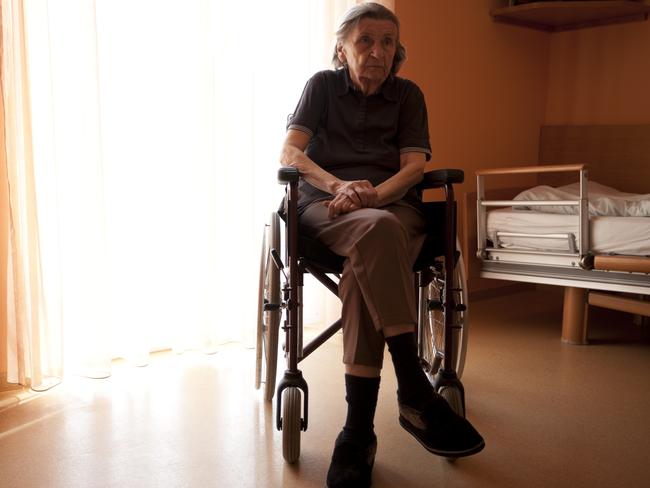
“It is an awful stripping away of rights and a further degradation of our elders.
“Removing legal rights from vulnerable members in our community is another assault on the rule of law.
“Like the rest of the community, aged care residents must retain the right to seek justice for a wrongdoing.”
ALA member and aged care lawyer, Rodney Lewis says that immunity for aged care providers was not recommended by the Commissioners following the Royal Commission into Aged Care Quality and Safety, nor was it referred to in the Commonwealth’s Response to the Royal Commissioners.
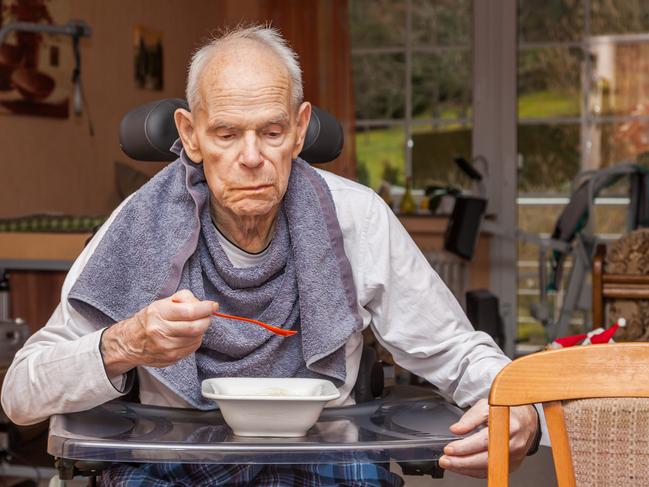
“This amendment comes as a surprise package with minimal opportunity for public debate,” said Mr Lewis.
“It is completely unacceptable and undermines the legal and human rights of aged care residents around Australia who may be in a locked ward, or have been given medication to change their behaviour, or have experienced other physical restraints.
“It is astounding discrimination against aged care residents and provides unprecedented protection against legal claims and charges for a discrete part of the private sector.”
Providers argue that different laws in states and territories leaves them open to legal issues even if they get written consent to be able to restrain residents.
‘DRUGGED TO THE EYEBALLS’: SHOCKING FACT ABOUT AGED CARE
Three safety bodies have vowed to work together to crack down on the inappropriate use of antipsychotic drugs – also known as chemical restraints – in aged care homes.
It comes more than a year after the Royal Commission into Aged Care recommended urgent reforms after hearing harrowing stories about how residents were being restrained using drugs.
The family of Terry Reeves, 72, told the Commission he was placated with multiple doses of a psychotropic medication, as well as being restrained to his chair with a belt, while in respite care at a home in NSW.

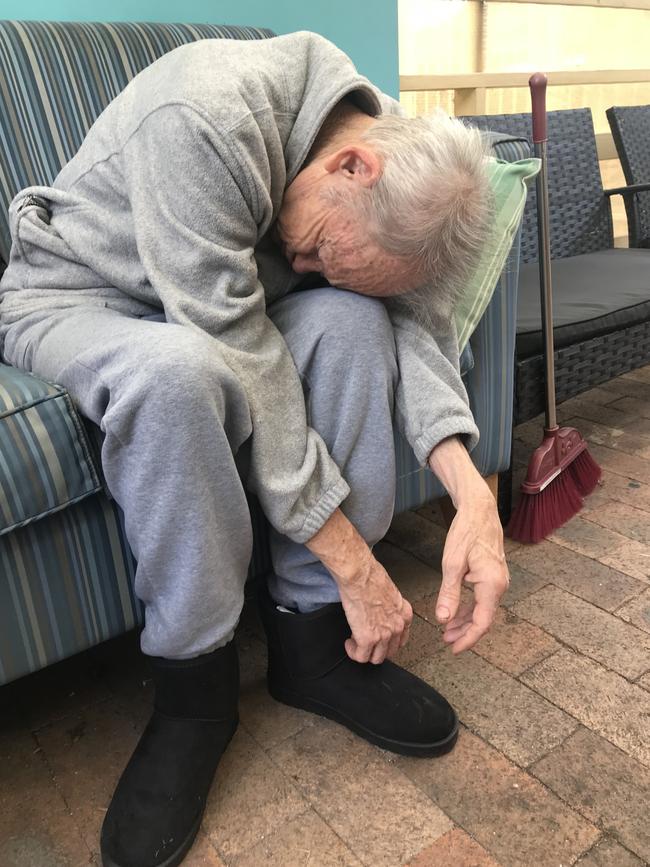
Distressing pictures of his limp body slumped over in his chair were released by the family.
They told how he lost weight and “was never the same” after spending time at the home.
A study by Macquarie University’s Dr Kimberley Lind found one in three aged care residents were zoned out on antipsychotics.
In a joint statement this week from the Australian Commission on Safety and Quality in Health Care, the Aged Care Quality and Safety Commission and the NDIS Quality and Safeguards Commission, it said there was evidence that psychotropic medicines were being overprescribed and overused, in particular with older people and people with disability.
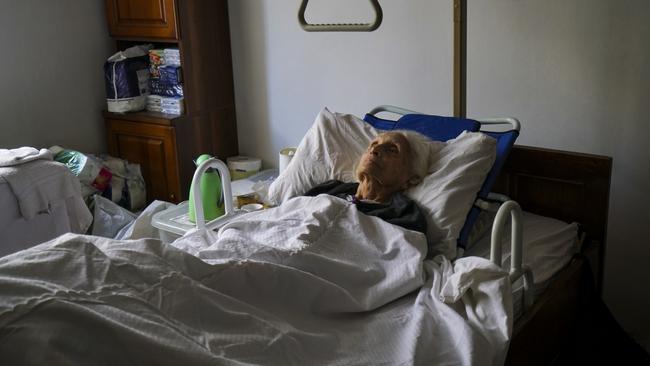
The three bodies said they would raise awareness of the risks associated with inappropriate use of psychotropic medicines among healthcare, aged care and disability workforces.
Solicitor and a long time observer of aged care and its legal problems, Rodney Lewis, said what was missing from the statement was a declaration that from now on, there will be consequences for staff, management, owners and operators in aged care and the disability sector, including penalties and possible terms of imprisonment.
He said it was up to management to properly instruct their staff in what is the line between lawful and unlawful in terms of medication restraint.
Aged Care Crisis advocate Lynda Saltarelli said the only way to fix the issue was for the Government to address the “unacceptable, dangerously low staff levels in more than half of our aged care homes”.

She said chemical restraints “make people drowsy, more docile and easier to handle in an understaffed nursing home”.
“People are suffering malnutrition and being drugged to the eyeballs with chemical restraints.
“We are looking at a total failure in aged care.”
She quoted a letter the advocacy group sent to the then Labor Minister for Mental Health and Ageing, Mark Butler, in August 2012, to illustrate that nothing had changed in a decade.
In it the group wrote about “thousands of dementia patients dying because of powerful and dangerous sedatives they did not need, given simply to enable fewer and less skilled staff to be employed to look after them”.
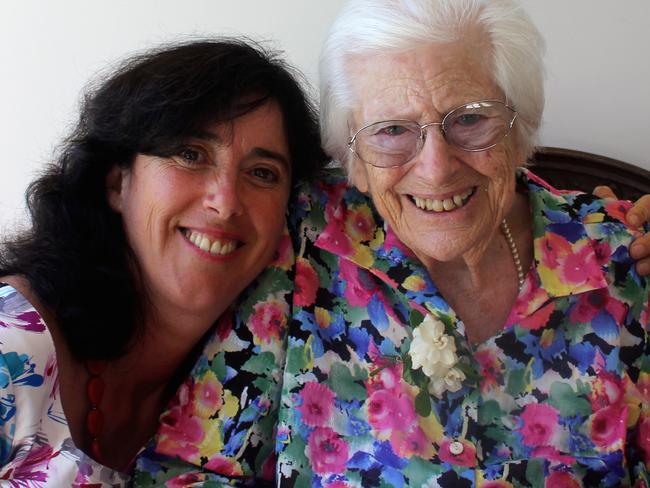
“It’s like groundhog day,” Ms Saltarelli said.
Aged Care Matters Director and independent candidate for Flinders Sarah Russell, said GPs also had to take responsibility because they write the PRN Orders – ‘pro re nata’ prescriptions which allow the medication to be taken as needed.
Meanwhile, Labor’s Shadow Minister for Senior Australians and Aged Care Services Clare O’Neil said these “unique medicines should only be used when absolutely necessary and these agencies working together to seek to reduce their use in aged care and other care settings is an important and welcome move”.





